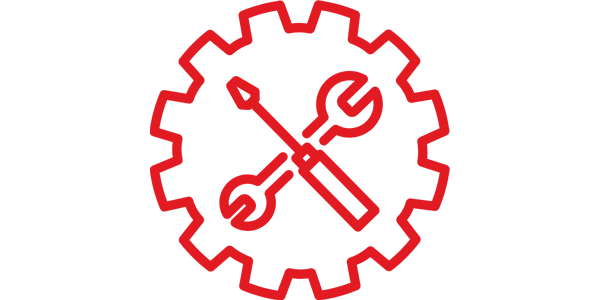Protect Your Winder Air Conditioner With Preventive Care
Your outdoor air conditioner — known as the condenser unit — is a crucial part of your HVAC system. However, severe weather can damage your outdoor AC unit, especially in areas like Winder, GA, where thunderstorms, power surges and extreme temperatures are common. A few common ways harsh outdoor conditions can impact your system include:
- Windblown debris can physically damage the condenser unit.
- Power surges can affect the unit’s electrical components.
- Heavy rains can cause flooding around your system.
- Airborne debris can clog the condenser’s fins.
At Absolute Comfort Air, we’re here to help you navigate these concerns and keep your system in top shape. We’re here to help you protect your air conditioning unit by providing weather-related AC maintenance tips. Trust us for professional HVAC services and air conditioning repair that Winder can rely on.
How Resilient Is Your Outside AC Unit From Power Surges?
Power surges during storms are a leading cause of damage to outdoor AC units. While modern units often include some internal surge protection, these measures may not fully prevent damage from lightning or severe electrical fluctuations.
To protect your system, consider:
- Installing whole-home surge protectors for comprehensive defense
- Regular inspections to check electrical components
- Turning off or unplugging your unit during severe storms if you lack surge protection
Can You Have the AC On During A Thunderstorm?
Running your air conditioner during a thunderstorm isn’t inherently dangerous to the unit’s mechanical parts. However, power surges caused by lightning pose risks to sensitive electrical systems.
Without proper surge protection, operating your air conditioner during storms can lead to costly repairs. Consulting a local HVAC company like Absolute Comfort Air can ensure your system has the proper safeguards.
Does It Help To Shade Your Outside AC Unit?
Georgia is no stranger to intense heat, especially during the summertime. During hotter times of the year, shading your outdoor unit can be beneficial for improving efficiency and reducing wear. Keeping your AC shaded can:
- Lower the temperature around the unit
- Reduce the workload on your system
- Extend the life of its components
- Blocks falling leaves and other debris
However, it’s important to avoid blocking airflow or trapping moisture, which can cause corrosion or mold growth. Even if it’s not raining, Winder’s humidity can take a toll on HVAC systems without the proper setup.
Other Weather Risks To Outdoor Air Conditioners
Besides power surges and sun exposure, outdoor condenser units face several other weather-related threats. Heavy rain can cause rust on metal components or lead to electrical shorts if water seeps into sensitive parts. Hailstorms are another concern, as the impact of hailstones can dent or damage the delicate coils and fins of the unit.
Additionally, strong winds can carry debris like leaves, branches and dirt that can clog the system, restrict airflow, or physically damage components. These factors highlight the importance of regular maintenance to ensure the equipment remains in optimal condition despite the unpredictable Winder weather.
Tips For Protecting Your Outdoor AC Unit
You can take proactive steps to protect your air conditioner from weather damage:
- Keep the area around the unit clean and free of debris
- Schedule regular maintenance with Absolute Comfort Air
- Consider strategic shading solutions that do not impede airflow
- Turn off the unit during lightning storms if surge protection isn’t installed
Safeguard Your Outdoor AC Unit In Winder, GA
Weather can impact your outdoor air conditioning unit in multiple ways, from power surges to physical damage and efficiency losses. Absolute Comfort Air is your trusted partner for maintaining and repairing your system. With our team, you can enjoy reliable comfort all year long. Contact us today for expert service and peace of mind.






